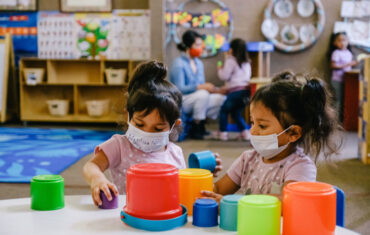In the midst of the pandemic, a small piece of cloth has incited a nationwide feud about public health, civil liberties and personal freedom. Some Americans refuse to wear face masks out of principle. So I have started wondering: Does wearing face mask change our social behavior and our emotional inclinations? And if mask-wearing does indeed change the fabric of our interactions, is that one reason why face masks are not more popular in the U.S.?
Personal freedom
Americans who choose not to wear face masks don’t want to admit this is the new normal. This may be a reaction, or overreaction, to authority. On the other hand, Americans rarely show the same reaction when they see signs that require them to wear shoes or shirts because abiding by those standards has become a part of our culture. Some say they don’t want the government to tell them what to do. Or that orders to wear face masks violate their personal freedom. Others complain of breathing problems with the masks. Still others don’t believe the masks prevent infections.
The disease is spreading rapidly in Oklahoma, South Carolina, Georgia and other conservative. Republican-leaning states where economies opened up early and where people are less likely to wear face masks. The way that Americans in these states and other parts of the country chafe at face mask requirement evokes a time when people here were first told to wear seat belts and not to smoke in restaurants. Americans initially resisted those restrictions, too. But now they follow these safety guidelines.
Face mask saves people
The benefit of citizens wearing face masks is not to the wearer of the masks but to the people who are saved from receiving droplets of COVID-19 when the wearer sneezes, coughs, slobbers or spews spittle when talking face-to-face. Therefore, wearing a mask brings a public benefit at a private cost or discomfort.
Although they get a lot of media attention, non-mask wearers are in the minority. A recent survey by the Pew Research Center on shoppers explored how many Americans do – or don’t – wear masks. They found about 65% of adults said they regularly wear face masks in public. Fifteen percent said they wear them some of the time, while most of the remaining 20% of respondents to the survey said they don’t wear masks at all. While the coronavirus pandemic rages on, face masks will continue to be a controversial item across America. While politics and culture significantly impact why people choose, or not choose, to wear a mask, they are not unconstitutional. They are crucial for our personal safety and will help prevent further infections.






